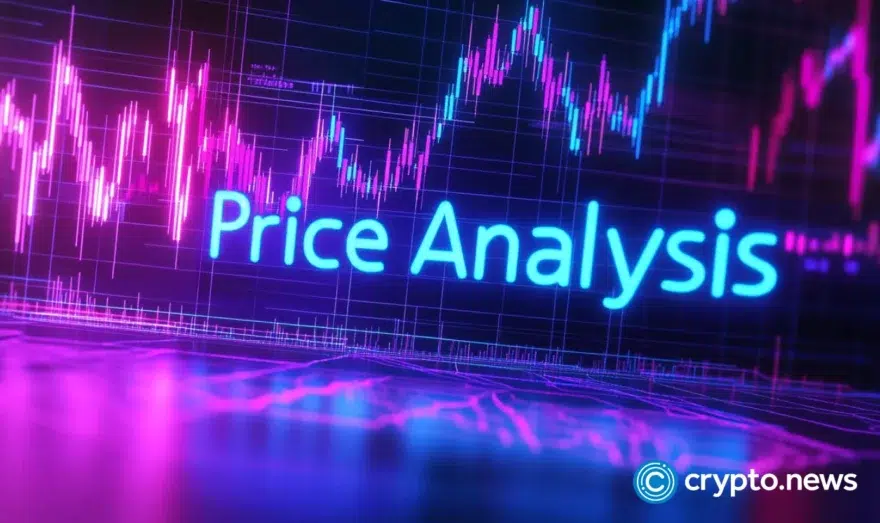Crypto Exchange Flows Surge as the Road to Market Recovery Spells Uncertainty among Investors

The sudden decline in the crypto market’s value over the last weekend has led to losses for various cryptocurrencies. Crypto enthusiasts expect Bitcoin and other large digital assets to trend lower in the short term.
Exchanges Outflows Surge
Despite the weak price-action during June, Bitcoin’s withdrawal rate from exchanges reached the most aggressive level in history. In June, the total outflow was over 151k BTC, with Whales and shrimp as its main receivers.
The implementation of the transaction tax in India, which has affected the trading volumes of various crypto exchanges, has issued warnings about the potential impact of the levy on the industry.
The value of daily trading on multiple exchanges, including ZebPay, WazirX, and CoinDCX, dropped significantly after the 1 percent tax deduction for digital currency transactions was implemented on July 1, according to data from coinGecko. Giottus, another exchange, saw its trading plummet by around 70%.
Various factors such as lack of cash on exchanges have led to the steep declines in the prices of various commodities. In addition, the unfavorable tax treatment of some of the transactions also played a part.
According to data from CoinGecko, WazirX, backed by Binance, experienced a spike in its trading volume on July 2, the day after the SEC implemented the tax. In early July last year, the exchange only took around two hours to reach that level.
According to Rajagopal Menon, a vice president at WazirX, the number of high-frequency traders and market makers actively buying and selling cryptocurrencies has decreased. He noted that other investors are also shifting their focus to decentralized exchanges.
Extreme Fear on the Crypto Market
The cryptocurrency market bottomed in June when Bitcoin’s price hit $17,000. It then pushed the Fear and Greed Index to an extreme level. Since then, the number one cryptocurrency has been pushing the market upwards and is currently trading between $18,600 and $21,000.
The rising support levels at $22,000 and $21,000 are the significant areas of resistance that market participants are eyeing. According to a report by Arcane Research, the outlook for the market is positive due to the recent shift in sentiment: “the sentiment in the crypto market has been depressed for several months, but we’re seeing a slight improvement this week. After the Fear and Greed Index climbed to 19 yesterday, we’re at the highest point in two months. While we’re still comfortable in the “Extreme Fear” area, we’re now pushing towards the “Fear” area, and the market is slightly more optimistic (…)”.
Ready For More Crypto Downside?
The performance of the crypto market is bound to be influenced by the larger cryptos such as Bitcoin, Ethereum, and Bitcoin Cash. The sector is likely to be impacted by macroeconomic factors such as rising interest rates and inflation in the U.S.
The influence of these factors on the market’s direction will eventually subside. However, until then, any bullish momentum remains susceptible.
The Fear and Greed Index could decline if Bitcoin’s price cannot break through the $22,000 mark. According to the data collected by various indicators, such as the Trend Precognition and Material Indicators, it is likely that the market will test its lower levels.
BTC Needed To Break Past $19K
Despite the various negative trends that Bitcoin has been experiencing, it managed to recover and reach the $19,000 mark. According to Matthew Hyland, an analyst, the price of Bitcoin has created a Bullish divergence in its daily time frame for the first time since breaking below $20,000.
According to a data analysis firm, Whalemap, the purchase of Bitcoin at $19,000 has boosted the sentiment surrounding the digital asset. According to statistics released by Santiment, the market opened many long positions on July 4, which raised the market’s optimism.
U.S. traders are also placing substantial bets on the continued rise of Bitcoin. Some cryptocurrency investors believe that the leading digital asset will require a couple of years to reach its next major peak. This belief is because, until the next major event, such as the Bitcoin halving, the leading digital asset will likely not be able to bounce back.
















